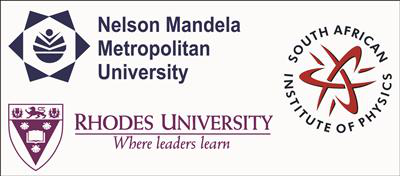Speaker
Main supervisor (name and email)<br>and his / her institution
Mark Herbert msherbert@uwc.ac.za
University of the Western Cape
Abstract content <br> (Max 300 words)<br><a href="http://events.saip.org.za/getFile.py/access?resId=0&materialId=0&confId=34" target="_blank">Formatting &<br>Special chars</a>
Many applications in nuclear physics require detail knowledge of fast neutron beams fluence energy distributions because neutron interactions with matter are energy dependent. For example, in radiotherapy for the treatment of cancer, radiation protection and calibration of detectors used for dose monitoring in space and air-crafts at research facilities such as iThemba LABS. Determining neutron beams fluence energy distributions pose a challenge. In principle, neutron beams fluence energy distributions can either be measured experimentally or calculated using Monte Carlo methods.
Monte Carlo codes are useful tools for the design and optimizing the neutron beam delivery system as well as neutron beams fluence energy distributions of the targets at nuclear research facilities such iThemba LABS time-of-flight facility. At iThemba LABS, fast neutrons are produced by bombarding different targets with proton beams of energy ranging up to 200 MeV.
This paper reports on work done using the Monte Carlo code MCNPX to simulate quasi-mono-energetic neutron beam fluence energy distributions produced at the iThemba LABS time-of-flight facility. Preliminary results of neutron beam fluence energy distributions for a Li-target produced by incident proton beams of 66 MeV and 100 MeV on the Li-target will be presented and discussed.
Please indicate whether<br>this abstract may be<br>published online<br>(Yes / No)
Yes
Apply to be<br> considered for a student <br> award (Yes / No)?
Yes
Level for award<br> (Hons, MSc, <br> PhD, N/A)?
MSc
Would you like to <br> submit a short paper <br> for the Conference <br> Proceedings (Yes / No)?
No

